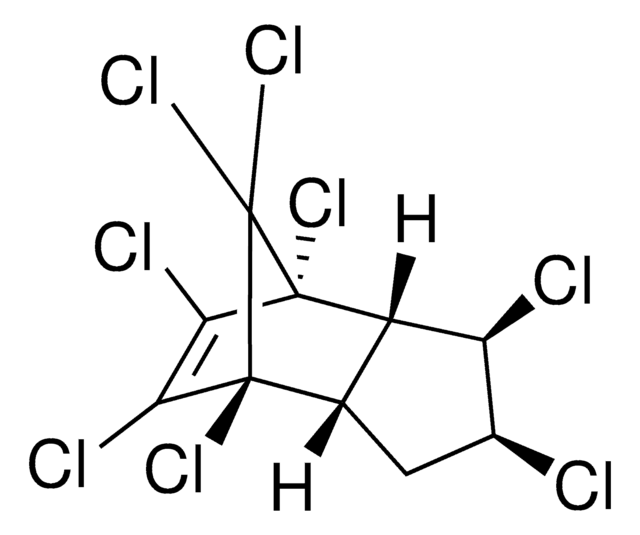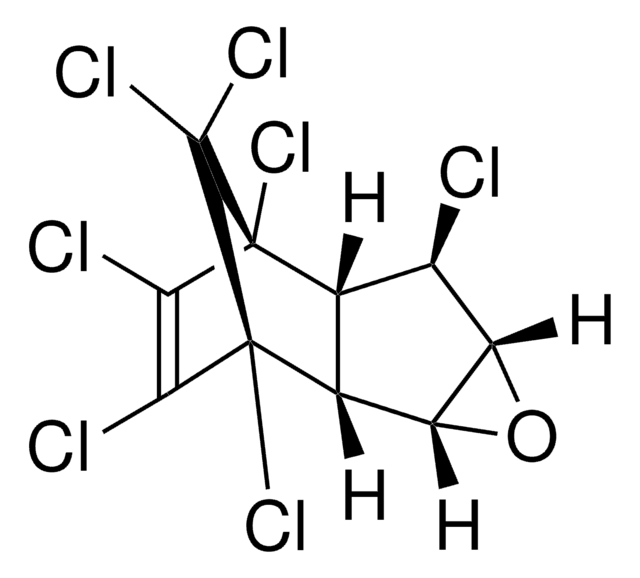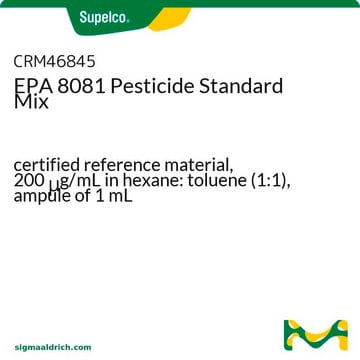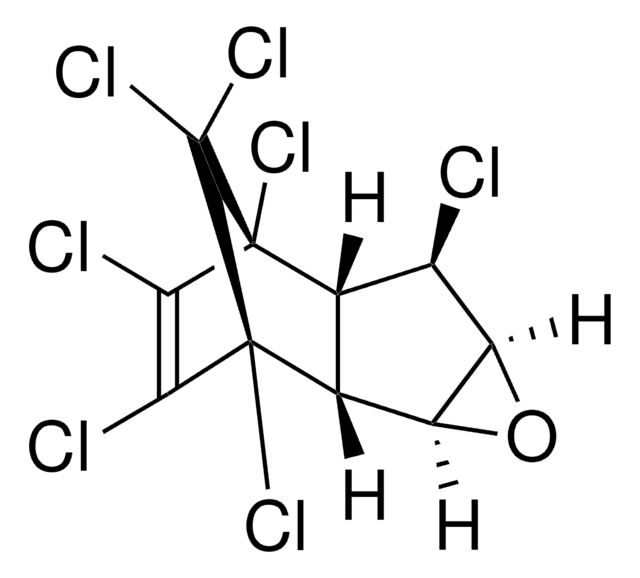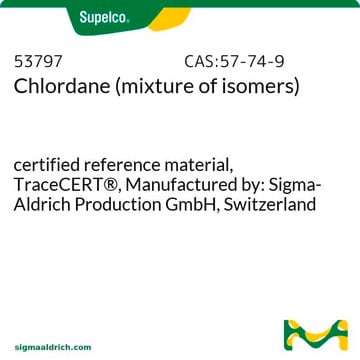442599
γ-Chlordane
PESTANAL®, analytical standard
Synonyme(s) :
trans-Chlordane
About This Item
Produits recommandés
Qualité
analytical standard
Niveau de qualité
Gamme de produits
PESTANAL®
CofA (certificat d'analyse)
current certificate can be downloaded
Conditionnement
ampule of 50 mg
Technique(s)
HPLC: suitable
gas chromatography (GC): suitable
Application(s)
agriculture
Format
neat
Température de stockage
2-8°C
Chaîne SMILES
ClC1=C(Cl)[C@@]2(Cl)[C@](C[C@@H](Cl)[C@@H]3Cl)([H])[C@]3([H])[C@]1(Cl)C2(Cl)Cl
InChI
1S/C10H6Cl8/c11-3-1-2-4(5(3)12)9(16)7(14)6(13)8(2,15)10(9,17)18/h2-5H,1H2/t2-,3+,4-,5-,8-,9+/m0/s1
Clé InChI
BIWJNBZANLAXMG-MPPHZFHBSA-N
Vous recherchez des produits similaires ? Visite Guide de comparaison des produits
Catégories apparentées
Description générale
Application
Informations légales
Mention d'avertissement
Danger
Mentions de danger
Conseils de prudence
Classification des risques
Acute Tox. 3 Oral - Acute Tox. 4 Inhalation - Aquatic Acute 1 - Aquatic Chronic 1 - Carc. 2
Code de la classe de stockage
6.1C - Combustible acute toxic Cat.3 / toxic compounds or compounds which causing chronic effects
Classe de danger pour l'eau (WGK)
WGK 3
Point d'éclair (°F)
Not applicable
Point d'éclair (°C)
Not applicable
Faites votre choix parmi les versions les plus récentes :
Déjà en possession de ce produit ?
Retrouvez la documentation relative aux produits que vous avez récemment achetés dans la Bibliothèque de documents.
Notre équipe de scientifiques dispose d'une expérience dans tous les secteurs de la recherche, notamment en sciences de la vie, science des matériaux, synthèse chimique, chromatographie, analyse et dans de nombreux autres domaines..
Contacter notre Service technique